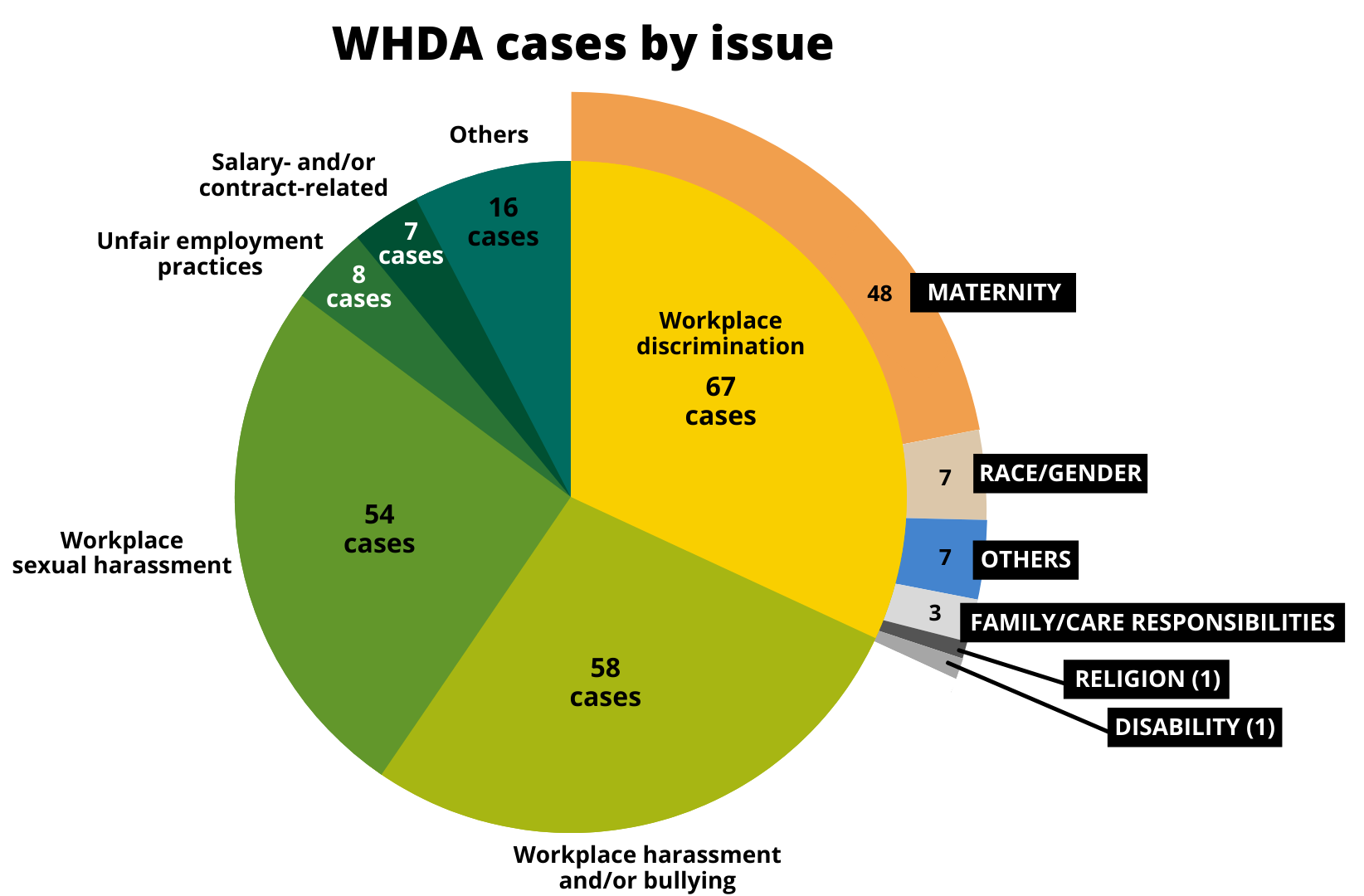-
Advocacy Theme
-
Tags
- Abortion
- Adoption
- Caregiving
- CEDAW
- Disability
- Domestic Violence
- Domestic Workers
- Harassment
- Healthcare
- Housing
- International/Regional Work
- Maintenance
- Media
- Migrant Spouses
- Migrant Workers
- Muslim Law
- National budget
- Parental Leave
- Parenthood
- Polygamy
- Population
- Race and religion
- Sexual Violence
- Sexuality Education
- Single Parents
- Social Support
- Sterilisation
- Women's Charter
On Singapore Chinese Chamber of Commerce and Industry’s survey on gender discrimination at work
March 31st, 2021 | Employment and Labour Rights, News
A new survey by Singapore Chinese Chamber of Commerce and Industry (SCCCI) found that 4 in 10 women had experienced gender-based discrimination at work, while only 1 in 10 men had experienced the same. These findings in many ways echo the observations of AWARE’s Workplace Harassment and Discrimination Advisory (WHDA), which supports women (and some men) facing gender-based discrimination at work.
AWARE’s WHDA saw 67 cases of workplace discrimination in 2020. Of these, 48 concerned maternity discrimination, and three others concerned family/care responsibilities; all took place during the clients’ term of employment.

These forms of gender discrimination are rooted in traditional gender stereotypes that position women as the rightful performers of unpaid care/household work, not employment. They manifest in all kinds of problematic beliefs: For example, IPS’s recent “Our Singaporean Values” survey found that almost half of respondents either agreed or remained neutral on the statements that “problems may arise if a woman were to earn more money than her husband”, and “men should have a greater right to a job than women when jobs are scarce”.
To juggle their care responsibilities, many women are forced into jobs that provide them with adequate flexibility—which are often low-paying jobs. Consequently, many women are shut out of our labour force, and Singapore’s gender pay gap endures.
The SCCCI survey found that only 12% of those who faced gender-based discrimination made reports about the incidents. This is a low number, but sadly unsurprising. Changes to the Employment Act in 2019, the introduction of the Tripartite Guidelines on Wrongful Dismissals and the Fair Consideration Framework are all important steps the government has taken to level the playing field; however, in the absence of anti-discrimination legislation, many workers in Singapore perceive a lack of effective remedies for discrimination. Women assisted by WHDA have hesitated to report due to fear of retaliation and concerns that reporting would have repercussions on their career progression and compensation. In cases of wrongful dismissal, mediation is an option, but the mediation process too is often viewed as less than ideal: The compensation an employee may receive after mediation does not make up for the number of months she may be out of a job following her report.
The Government has maintained that introducing anti-discrimination legislation could increase business costs and undermine economic competitiveness in Singapore. Yet other countries with anti-discrimination laws, such as the United States, Britain and the Netherlands, remain globally competitive. It is unclear what the tangible disadvantages would be to such a law.
SCCCI president Roland Ng said, “I encourage women to continue to challenge themselves, to realise their fullest potential.” In turn, we encourage policymakers to realise the fullest potential of Singapore’s workforce, by introducing an anti-discrimination law, equal maternity and paternity leave, paid eldercare leave and the legislated right to request flexible work arrangements. We also encourage employers to challenge themselves to stop relying on traditional gender norms to make employment-related decisions.



